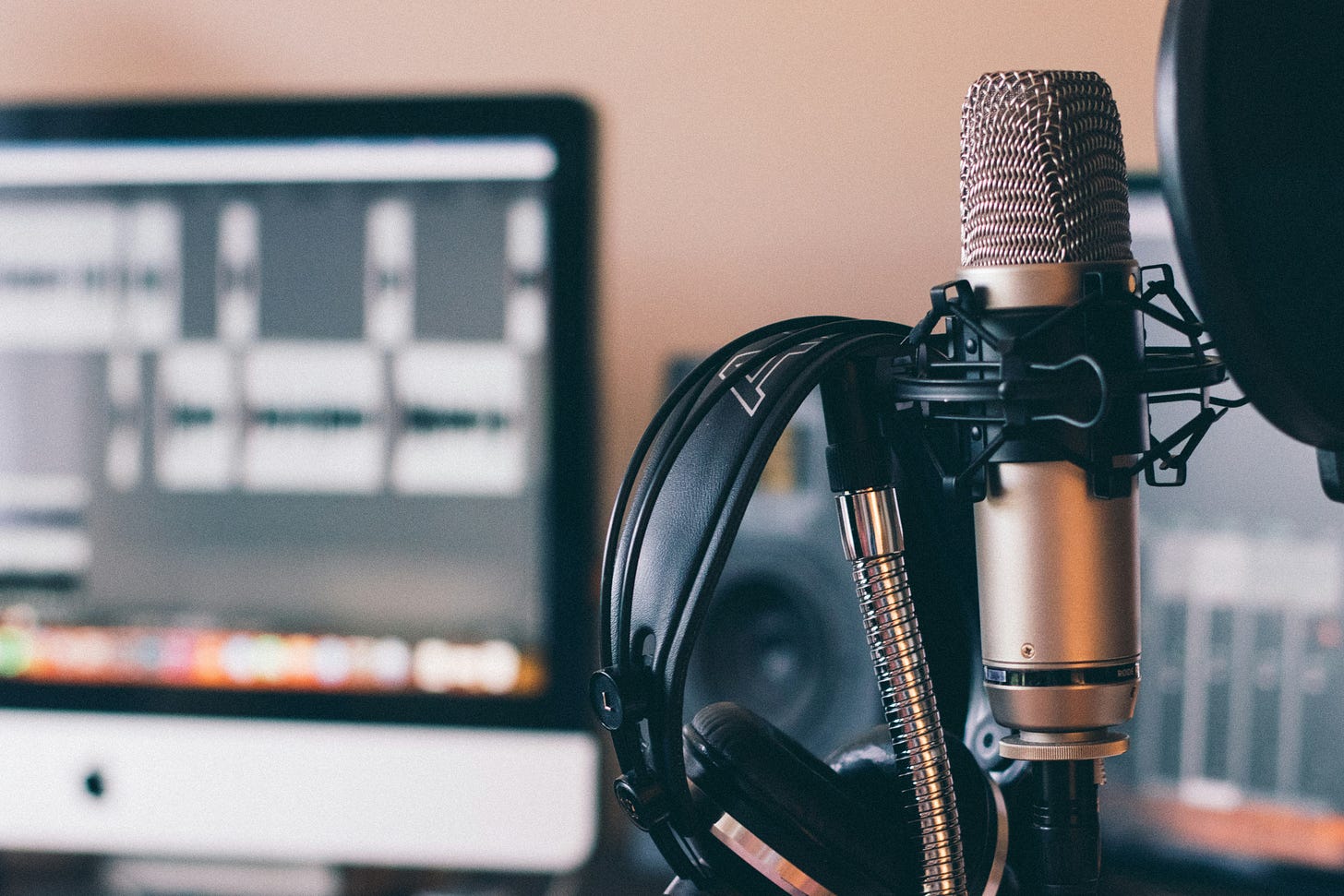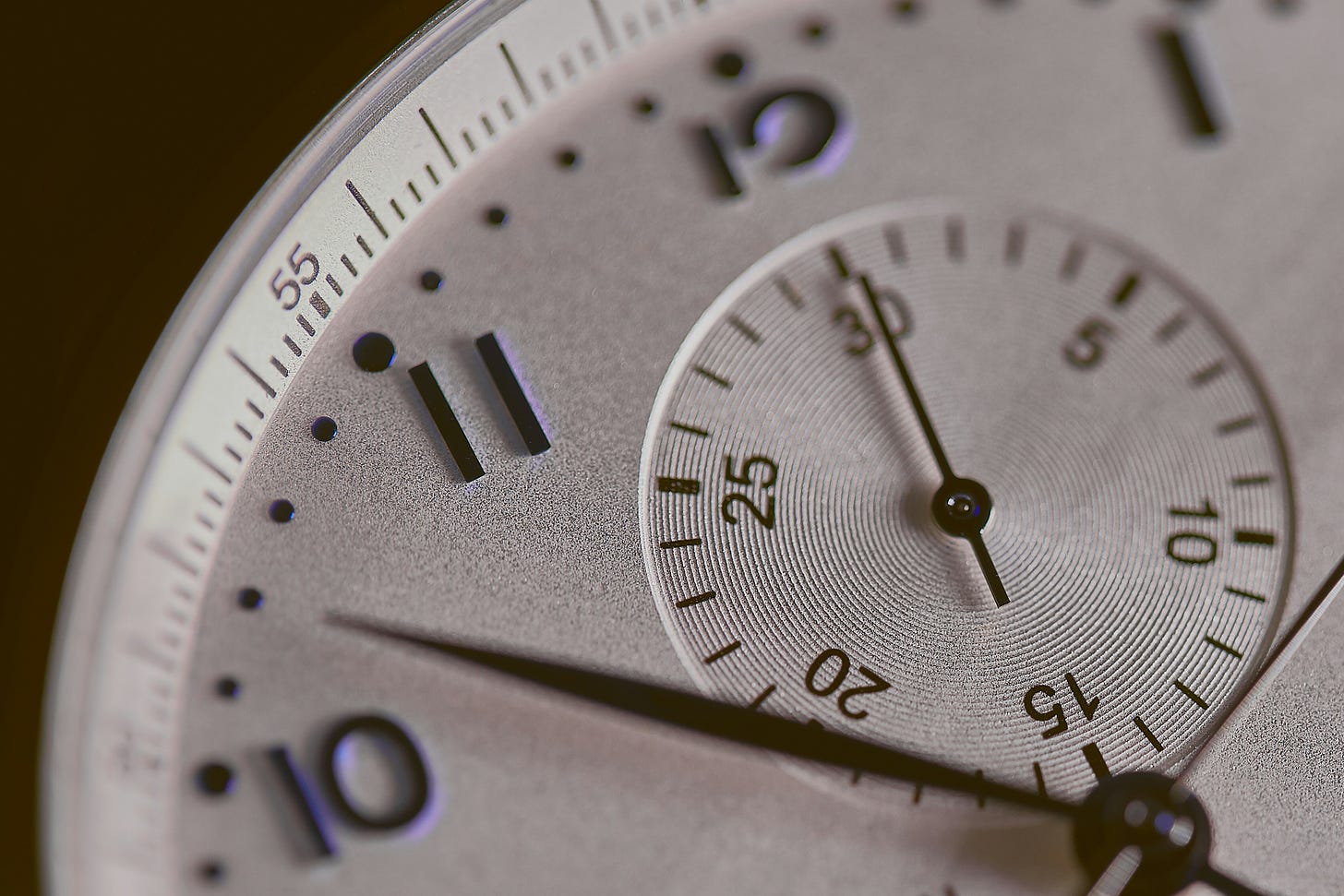The Beatles performed live over 1,200 times before achieving international fame.
Michael Jackson wrote more than 100 songs for each album, ultimately keeping only the best 10-12 and discarding the rest.
Prince released 39 studio albums in his lifetime, and left behind a vast collection of unreleased work that could easily fill numerous more albums for years to come.
If you’re aiming for success with your music at any level, it’s crucial to understand what propelled these artists to such great heights.
What is the secret behind their discipline, consistency and eventual success?
This question leads us to a unique paradox in music creation.
A mindset shift that can help artists produce the best music they can possibly create in order to achieve their own definition of musical success.
This is a concept the all of the greats understood well:
The philosophy that high-quality music is a byproduct of creating large quantities of music
But there also exists an opposing philosophy.
One which if not managed properly, prevents artists from creating their most significant works and even discourages many from music production altogether.
In fact, it was this mindset that hindered my musical progress for years, making my sessions feel like a torturous, demoralizing chore rather than a fun, energizing and creative activity.
These 2 opposing philosophies are:
Quality Mindset: Focus on the quality of your musical output.
Quantity Mindset: Focus on the quantity of your musical output.
But what distinguishes these two approaches?
And why does one foster long-term growth while the other often leads us creative stagnation?
Why Focusing On Quality Is Stunting Your Musical Growth
Your mindset not only shapes your beliefs but also influences how you perceive the world around you.
In turn, these beliefs inform your habits and how we interact with the creative process.
This explains why artists who focus solely on the quality of their music often face common creative challenges such as:
Unrealistic expectations
Perfectionism
Over-Investment in bad ideas
All of which can be detrimental to our creativity and ultimately our musical growth.
But the reason why a focus on quality sneakily stifles our creativity is because it makes logical sense.
After all, we all want to make the best quality music we’re capable of. This is what gets our music saved, liked and replayed by fans.
We want it to be as good as possible, for good reason.
But why is it that this focus on quality often leads many artists to creative anguish rather than actually improving the quality of their music?
Expectations vs. Reality
When we make music with a quality focused approach this often sets an unrealistically high bar for our creations.
These expectations become even more demoralizing when we begin to compare our music to that of our favorite artists and notice the significant gap in quality.
For this reason it’s crucial for artists to accept that most of the music we create may not meet our standards, feel special or release-worthy (This especially true for beginners).
Even Prince and Michael Jackson would scrap 90% of what they produced, and an even smaller percent saw the light of day, all because it was work that didn’t meet their standards and measure up to their expectations of quality.
As radio personality Ira Glass once said, in a 2005 interview:
Your taste is killer, but your skills need time to catch up.
Getting through this phase of dissatisfaction with your work is a necessary right of passage for every artist.
And if I’m being honest, it never really goes away.
Yet, many inexperienced music producers cling to the romantic notion that their next song will be "the one” which launches them into stardom and allows them to kickstart their career as a full-time musician.
This hyper-focus on our music’s quality leads us to have unrealistically high expectations for our music causing us unnecessary psychological and emotional pressures.
Especially when you consider the fact that your experience and time-investment into your work is minuscule compared to that of your musical idols.
Having expectations is a liability in creativity, you’ll be far more productive when you let go of expectations and instead allow yourself to be guided by the work itself.
The Perfectionist Trap
Another significant drawback of focusing on quality is that it demands attentiveness to the smallest sonic details— Which ultimately leads us into an endless goose chase:
Perfectionism.
Just like expectations, perfectionism not only decreases our productivity but also stifles our creativity.
It quickly fills our time with endless revisions, playing back and auditioning countless sounds.
All of which leads us to question and doubt our past decisions.
This state of constant analysis and judgment is not conducive to creativity because it’s puts us in a state of constant paralysis by analysis.
As the famous saying goes “the devil is in the details”.
And this is magnified in the endless world of music production.
Perfectionism tricks us into believing we are doing our work a greater good but at the expense of not prioritizing it’s completion.
In other words, perfectionism is often an agent of procrastination.
Procrastination is the most common manifestation of resistance.
— Steven Pressfield
Beware of perfectionism and this fixation on quality as it can very easily lure us into a chase with no end.
The Time-Invested = Quality Fallacy
The Time-Invested = Quality Fallacy is the belief that the amount of time invested in a project dictates its quality.
But the reality is you can spend an hour on a song and move a listener to tears while a song crafted over years and hundreds of hours might fall short and not garner the attention you believe it deserves.
This fallacy sets a dangerous precedent because it overlooks 1 crucial truth:
The vast majority of listeners value the emotional impact of a song far more than the effort behind it.
The true measure of a track's success lies in its ability to resonate with the listener, not the time spent creating it.
Think of it this way:
Creating songs are like childbirth.
Some births are long and exhausting taking up several days in labor, while others happen quick, easy and effortlessly in a matter of minutes.
Does the duration of labor then determine the baby's worth or importance?
No.
Similarly, the time spent on a song doesn’t dictate its impact.
The song simply needs to become, whether it takes 1 hour or 100 the end result will still simply be a song.
Ultimately spending more time on a song won’t necessarily make it better, but it definitely can.
The real wisdom lies in knowing when more time investment it necessary.
Now that we explored some of the drawbacks of a quality focused approach let’s take a look at the alternative mindset available to us.
One that not only enhances the quality of our music but also helps us build positive creative momentum— And it’s what allowed the greats to create countless hits throughout their careers.
Quantity Mindset: The Path Towards Musical Growth
To truly reach our full musical potential, we must shift our focus from solely pursuing high quality music to producing a large quantities of songs.
This mindset shift shields us from the common pitfalls of a quality focus approach such as expectations, perfectionism, over-investing time into uninspiring music.
Our goal is to cultivate a positive environment ripe for creativity, chaos, serendipity, and growth.
But why is this focus on quantity so effective for musical growth and creative momentum?
And what are some practical steps and exercises we can take to integrate a quantity-focused approach within our creative process?
Learning Through Volume
The function of the overwhelming majority of your artwork is simply to teach you how to make the small fraction of your artwork that soars.
— David Bayles, Ted Orland
There’s an age-old saying that states “practice makes perfect”.
It’s a universal truth we’ve all come to understand and accept.
Through this constant practice, repetition and iteration is where we’ll gain valuable experience, which will improve our skills and push our productions to the next level.
But there’s a problem.
Creating a song requires us to have a basic understanding or many technical and creative skills in combination such as:
Mixing
Songwriting
Arrangement
Sound design
Instrumental skill
Music theory
Just to name a few.
But how does creating large quantities of music help us create better music?
The trick lies in developing each of the required skillset in a balanced way.
The only way to achieve this is by having constant material to work on. You get this by creating a lot of ideas so that you’ll have a lot of material to practice on.
These sessions aren’t just about practicing 8-bar loops, sound design, or vocal takes – This means developing your songs from idea to completion, consistently.
It’s only through the practice of producing fully finished songs which will begin to improve your productions and allow you to practice the vast skillsets required in a balanced manner.
To better illustrate the point think of a bodybuilder.
Just as they work out different muscle groups to develop a balanced physique (chest, legs, arms, back), you also need to practice finishing songs and honing all the required skills required in music production to make a cohesive song (songwriting, sound design, mixing, etc.)
Especially if you’re a solo music producer you’re much more equipped to finish a song when you are a generalist instead of a specialist (in certain music production skills).
Not only that, by creating large volumes of music we get into a habit of exposing ourselves to all aspects of music production compared to a focus on quality which typically hinders us and diverts our attention to the smallest details of a song (details that 90% of listeners will not even notice).
It serves us to accept the fact that the path to quality occurs not in spite of quantity but because of it.
But if you’re not use to a quantity first approach, how does one even start?
How To Create More Music, Faster
Now that we understand the benefits of embracing a quantity focused mindset it’s time to act on the practical applications of this approach.
How do you begin making more music?
From my experience it comes down to 3 key steps:
Embrace a quantity focused mindset.
Understanding the stages of the creative process (So you can optimize it for productivity).
Measure and set achievable goals for your musical output.
Now let’s dive deeper into each of these.
Adopting A Quantity Focused Approach
You make good work by (among other things) making lots of work that isn’t very good, and gradually weeding out the parts that aren’t good, the parts that aren’t yours. It’s called feedback, and it’s the most direct route to learning about your own vision.
— David Bayles, Ted Orland
As we learned, your mindset not only shapes your beliefs but also influences how you perceive the world around you.
In order for us to adopt a quantity focused approach we must also understand the common misconceptions linked to this philosophy.
One of those is the belief that a focus on quantity means rushing through the creative process which results in low-quality music.
While I will admit that a quantity focused approach might make us more careless and invite chaos into our process this is actually a benefit not a detriment to our music.
How so?
It’s only by opening ourselves up to quick and fluid creation (chaos) that we’ll invite serendipitous moments and happy accidents to take place – All of which can enhance our work and give our music the hard to replicate qualities that often makes music special.
Speed is absolutely key to creativity. The more time it takes to create something, the less likely you are to create something.
— Patrick Stump
Another important benefit of producing large volumes of music quickly is that it helps you prioritize execution and quickly learn from feedback.
And it’s easy to see why…
As we become more familiar with each stage of the creative process and we also begin to finish more music faster, all while gaining the valuable experience along the way.
Ultimately through a quantity-centric approach you’re able to gamify the process making creation a fun, engaging and habitual practice instead of it being a source of dread, anxiety and procrastination.
Streamlining Your Creative Process
Creativity thrives on speed.
It’s through speed and repetition that you increase the rate at which you learn and increase the quality of your music.
But in order to rapidly produce large volumes of music, we need to navigate the creative process with both speed and efficiency.
This requires an understanding of all the stages within the process, which include:
Capturing ideas that inspire you.
Creating new song ideas.
Refining and arranging songs.
Releasing, reviewing, or receiving feedback.
These are the 4 pivotal tasks in music production that enable you to focus on what truly matters:
Finishing music.
You can now buy my flagship ebook Musical Momentum which serves as an in depth guide and introduction into all of the stages of the musical creative process. In this ebook I detail my Work-Life-Balance System which allows me to juggle a full-time job and structure my days, weeks and months for a consistent creative practice.
Without completing songs, there are no results to show for and we can’t gather the valuable feedback which we can look back on to improve our music.
Not only that but by not finishing ideas, you reinforce the habit of abandonment.
Creating a large quantity of ideas familiarizes us with all stages and helps us identify and streamline each step of the process.
Ultimately this practice of focusing on quantity rather than quality will not only increase your productivity but also improve the quality of your music in the long run.
Setting Goals For Musical Output
Once we adopt a focus on quantity and understand the stages of the creative process, it becomes useful to set measurable and achievable goals.
Since our measure of success is no longer the hard-to-measure quality and is now the more tangible quantity of output we’re able to gather data and track results.
It’s in the practice of hitting these goals where we will eventually develop the skills which help us improve our music.
For example, these are 2 key metrics I prioritize:
Number of song ideas generated.
Number of songs finished.
Next, I set monthly goals for each of these.
Target for song ideas generated: 12 song ideas per month (3 ideas per week)
Target for songs finished: 2 finished songs per month (1 finished song every 2 weeks)
Side Note: Depending on your preferences and time availability, structure your goals accordingly. These goals are simply the targets I can hit consistently with my current daily schedule and routine.
Viewing my progress through this lens allows me to consistently hit my targets, while increasing the likelihood of creating the diamonds in the rough (the special songs that end up defining your musical identity).
By focusing on quantity rather than quality I’m able to view creating good music as a consequence of statistical probability rather than a rare mystical occurrence.
From experience I’ve come to observe that the more ideas you create, the more likely you are to generate high-quality ideas.
As long as I hit these targets month after month I know I’m consistently moving in the right direction.
It all becomes a number’s game.
The Path Of Least Resistance
In the end it’s this practice of producing a high volumes of work which not only enhances creativity but also accelerates skill development, allowing artists to discover and refine their true sonic identity.
This is what the greats understood but also practiced and embodied.
They didn't achieve greatness by dwelling on perfection but by immersing themselves in the act of creation, learning and evolving with every finished piece.
In the end you have a lifetime to come back to song ideas which you feel needs more time from you.
For me, understanding this gave me a sense of peace and not only increased the amount of songs I made but it improved the quality of my music.
It rekindled the joy of creation, made my studio sessions fun and engaging once again and it gives my days purpose as it helps me look forward to getting in the studio.
This makes staying committed and disciplined to your work easy and effortlessly.
As always thank you for reading, until the next one.
— Hermes
P.S. If you’re absolutely serious about your creativity, creative growth and becoming a more balanced and prolific music producer, here are 3 ways I can help you:
Creative Foundations: Downloaded by 300+ music creators, this 13-page ebook offers the best books on creativity, complete with summaries and a curated reading order to sharpen your creative edge. Download it for free here.
Musical Momentum: In this 32-page ebook I share a modular system to optimize your creative process, manage time effectively, and achieve consistent productivity as a music producer. Lear more here.
Work With Me 1-1: Work with me 1 on 1 to overcome creative blocks, refine your authentic sound, and build a systemized workflow for long-term musical growth. Apply here.








